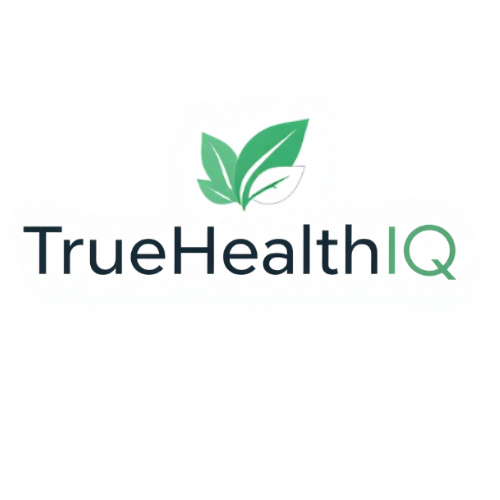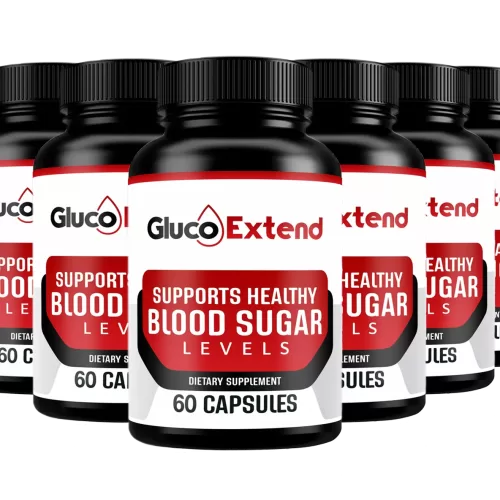What Is Berberine and Why Is It Going Viral?
In the past year, social media platforms like TikTok and Instagram have exploded with content around natural health remedies. One supplement, in particular, has gained massive traction—berberine—a golden-yellow compound derived from plants like barberry and goldenseal. Dubbed the “natural Ozempic” by wellness influencers, berberine is being hailed for its ability to support blood sugar regulation, aid weight loss, and improve metabolic health.
But is it really a miracle supplement? And can it truly mimic the effects of prescription drugs like Ozempic (semaglutide), which are used to treat type 2 diabetes and assist in weight management?
Let’s dive deep into the science, benefits, risks, and top-rated products you can find on Amazon.
How Berberine Works in the Body
Berberine’s mechanisms are surprisingly well-studied. It acts on a molecular level in a similar way to metformin, a popular diabetes medication. The key mechanism? It activates AMPK (AMP-activated protein kinase)—often referred to as the body’s “metabolic master switch.”
Here’s what happens when AMPK is activated:
- Increased glucose uptake by cells
- Decreased glucose production in the liver
- Enhanced fat burning and energy production
- Improved insulin sensitivity
In simple terms, berberine helps your body manage blood sugar more efficiently and reduces the risk of insulin resistance, a condition often tied to obesity and metabolic syndrome.
The Connection Between Berberine and Weight Loss
Here’s where things get exciting—and where the “natural Ozempic” nickname comes in.
Some preliminary research and anecdotal evidence suggest that berberine may:
- Help reduce body weight
- Lower body mass index (BMI)
- Decrease belly fat
- Suppress appetite (in some users)
A meta-analysis published in Obesity Reviews in 2020 found that berberine supplementation resulted in significant reductions in weight, BMI, and waist circumference across multiple clinical trials. While the weight loss effects aren’t as dramatic as those seen with GLP-1 drugs like Ozempic, the benefits are noteworthy—especially when paired with diet and lifestyle changes.
Additional Health Benefits of Berberine
Berberine isn’t a one-trick pony. Its benefits extend well beyond blood sugar and weight management:
1. Supports Healthy Cholesterol Levels
Berberine has been shown to lower LDL (bad) cholesterol, triglycerides, and total cholesterol while increasing HDL (good) cholesterol. It works partly by upregulating LDL receptors in the liver, allowing your body to clear out excess cholesterol more efficiently.
2. Reduces Inflammation
Chronic inflammation is a key driver of many diseases, including cardiovascular issues and autoimmune conditions. Berberine has been observed to have anti-inflammatory effects at the cellular level, helping reduce oxidative stress and inflammation markers.
3. Improves Gut Health
Berberine may have a positive effect on gut microbiota by increasing beneficial bacteria and reducing harmful pathogens. This is crucial for digestion, immunity, and even mental health, given the strong gut-brain connection.
4. May Help With PCOS
Some studies suggest berberine can improve insulin sensitivity and hormonal balance in women with polycystic ovary syndrome (PCOS), making it a potential natural aid for fertility and symptom management.
How to Take Berberine Safely
Berberine is typically taken in doses ranging from 900mg to 1500mg per day, divided into 2-3 doses (due to its relatively short half-life in the body).
Tips for Safe Use:
- Take with meals to avoid gastrointestinal discomfort.
- Start with a low dose (e.g., 500mg per day) and gradually increase.
- Consult your healthcare provider, especially if you’re on blood sugar medications or have underlying health conditions.
- Avoid combining with metformin, unless under professional guidance.
Potential Side Effects and Risks
Though generally well-tolerated, berberine can cause some mild side effects in sensitive individuals, including:
- Nausea
- Constipation or diarrhea
- Headaches
- Low blood pressure (in rare cases)
Berberine is not recommended for pregnant or breastfeeding women, as it may interfere with fetal development or breast milk production.
How Does It Compare to Ozempic?
While berberine has exciting potential, it’s important to understand the distinction between a natural supplement and a prescription GLP-1 receptor agonist like Ozempic.
| Feature | Berberine | Ozempic (Semaglutide) |
|---|---|---|
| Type | Natural plant alkaloid | Prescription drug |
| Mechanism | Activates AMPK | Mimics GLP-1 hormone |
| Approved For | Supplement use (not FDA-approved as a drug) | Type 2 diabetes and weight loss (FDA-approved) |
| Weight Loss | Moderate | Significant |
| Side Effects | Mild (GI issues) | Nausea, vomiting, pancreatitis risk |
| Cost | ~$20–$40/month | ~$900+/month (without insurance) |
Bottom line: If you’re looking for a natural way to support your metabolic health, berberine is a promising supplement. However, it is not a replacement for prescribed medications, especially in severe cases of diabetes or obesity.
Top 3 Berberine Supplements on Amazon
If you’re ready to try berberine, these are three high-quality options available on Amazon, each with excellent reviews and clean ingredient profiles:
1. Thorne Research Berberine-500
- 500mg per capsule
- Trusted brand known for clinical-grade supplements
- NSF Certified for Sport
Perfect for beginners or athletes seeking a reputable, third-party tested product.
2. Berberine HCL by Sunergetic
- 1200mg per serving (2 capsules)
- Contains berberine HCL for high bioavailability
- Non-GMO and made in the USA
Ideal for those looking for a stronger dosage to support insulin sensitivity and metabolism.
3. Dr. Whitaker’s Berberine GlucoGold
- Includes alpha-lipoic acid and cinnamon for enhanced blood sugar support
- Doctor-formulated
- Designed specifically for people with type 2 diabetes or prediabetes
A comprehensive blend for those focused on glycemic control and cardiovascular health.
Should You Take Berberine?
Here’s a quick checklist to help you decide if berberine might be right for you:
✅ You’re trying to manage mild blood sugar imbalances
✅ You want a natural metabolism booster
✅ You’re struggling with PCOS symptoms
✅ You prefer herbal alternatives to pharmaceuticals
✅ You want to reduce cholesterol or support gut health
However, berberine is not a magic bullet. Like any supplement, it works best when combined with:
- A whole-food, low-glycemic diet
- Regular movement and exercise
- Stress reduction techniques
- Adequate sleep and hydration
Final Thoughts: Trendy or Truly Effective?
Berberine’s viral status is well-earned—it’s backed by both ancient herbal use and modern research. But it’s also a reminder that “natural” doesn’t mean risk-free, and supplements should be used wisely and intentionally.
Whether you’re looking to support your metabolism, lower blood sugar, or aid weight loss, berberine offers a science-backed option with minimal side effects. And unlike Ozempic, it’s accessible without a prescription or a $900 price tag.
So, is berberine the natural Ozempic?
Not quite—but it might just be the closest thing nature has to offer.
FAQs About Berberine
Is berberine safe to take daily?
Yes, for most healthy adults. Stick to recommended doses and consult your doctor if you’re on medications.
Can I take berberine with other supplements?
Yes, but avoid mixing it with high doses of other blood sugar-lowering compounds unless monitored.
When will I start seeing results?
Most people notice changes in energy and appetite within a few weeks. Blood sugar improvements may take 4–8 weeks.
Can berberine cause low blood sugar?
It’s possible, especially if taken with insulin or other medications. Monitor your levels closely.




![How to Lower Blood Sugar Naturally with Supplements? Does Gluco Extend Really Work? Honest Review of This Natural Blood Sugar Supplement [2025]](https://www.truehealthiq.com/wp-content/uploads/2025/04/GlucoExtend-png.webp)




